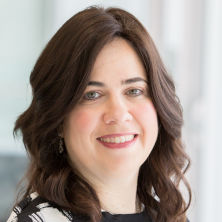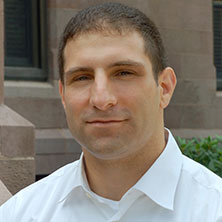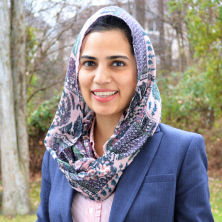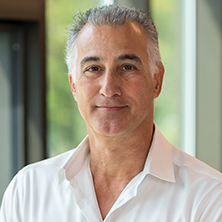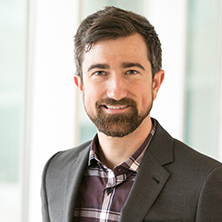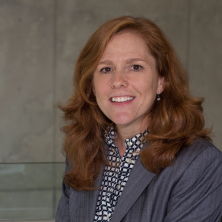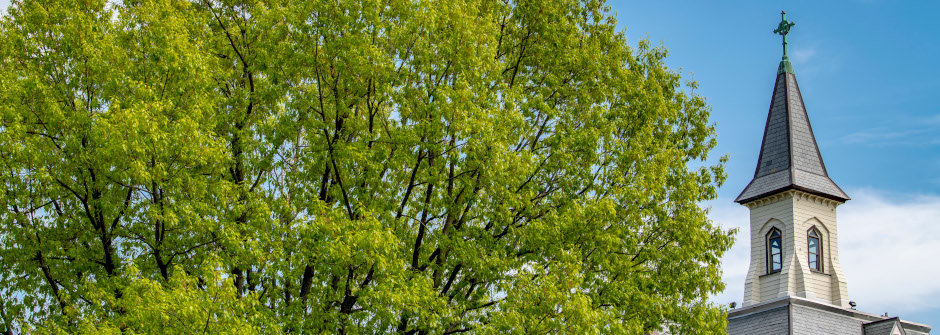
Completed Academies
2021 Academies
The Office of the Provost, in conjunction with the Deans Council awarded funding to the following academies in 2021:
- Academy for Applied Analytics and Technology (A3T)
- Academy for Business Humanities
- Academy for Green Chemistry, Stewardship and Sustainability
- Academy for Interprofessional Education and Research (AIER): Disease Detection, Prevention, and Intervention
- Catholic Social Thought in Action: Integrating Catholic Studies and Social Work Pedagogy and Practice
- DiploLab Undergraduate Research Lab
- Interprofessional Active Learning Environment, Integrating Simulation and Telehealth Practices to Promote Psychosocial Wellbeing
Also in 2021, the Office of the Provost also provided smaller seed grants for the following initiatives proposed within Academy applications:
- Institute for Communication and Religion, and students. Tune into WSOU and ICR podcast network.
- Additional Undergraduate Research Labs open to all colleges.
- Development of a "Civilizational Prospects"Core 3 course, a conference, and investigation of a Future Studies program.
- Academy for Applied Analytics and Technology (A3T) »
This Academy draws upon faculty from the College of Arts & Sciences, the Stillman School of Business, the School of Health and Medical Sciences and more to broaden the learning experiences and career prospects for students in applied analytics, big data, and related fields. This Academy also facilitates creative cross-disciplinary projects that apply analytics and technology to solve pressing real-world problems and topics, including supply-chain management, machine learning, technology ethics, ESG (Environmental, Social, and Corporate Governance), cybersecurity, finance and disruptive technology, and more.
Academy objectives include:
- Creation and curation of more courses in applied data analytics and technology across
the curricula, including:
- Cross-disciplinary collaborative capstone courses, which involve teams of students working together on projects
- Proposals for new graduate and undergraduate programs, potentially including:
- MS in Financial Technology
- Undergraduate Concentration in Applied Analytics
- Undergraduate Concentration in Supply Chain Technology
- Relevant scholarly projects, such as an investigation of the impact of COVID on supply chains;
- Proposal for Center for Applied Analytics and Technology that would cultivate corporate partners and apply for grants, run research seminars, and coordinate cross-disciplinary curricula;
- Partnerships with the NJ Big Data Alliance, IEEE: Institute of Electrical and Electronics Engineers, Kean University Data Analytics Center, and many large corporations.
- Consulting services available: contact Renu Ramnarayanan, Ph.D. of the Department of Mathematics and Computer Sciences at Renu.Ramnarayanan@shu.edu.
Learn more about the Academy for Applied Analytics and Technology »
News:
- Seton Hall Academy for Applied Analytics and Technology will host a hackathon April 22-24, 2022 in partnership with Microsoft and Spektra Systems. The hackathon, open to students enrolled in New Jersey institutions of higher education, will focus on data analytics for alternative energy deployment in New Jersey.
- Seton Hall University will host the 2023 New Jersey Big Data Alliance Conference! Stay tuned for details and a call for proposals.
Faculty:
Manfred.Minimair@shu.edu
Profile »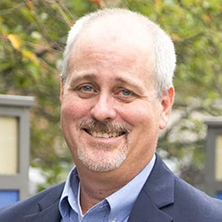
Matthew.Hale@shu.edu
Profile »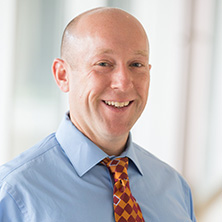
Richard.Boergers@shu.edu
Profile »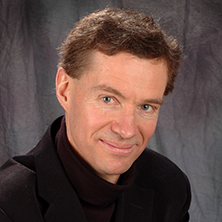
Anthony.Loviscek@shu.edu
Penina.Orenstein@shu.edu
Profile »
Hongfei.Tang@shu.edu
Profile »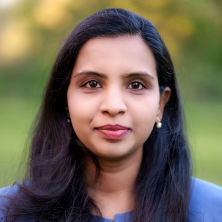 Shajina Anand
Shajina Anand
shajina.anand@shu.edu - Creation and curation of more courses in applied data analytics and technology across
the curricula, including:
- Academy for Business Humanities »
In an era when factual answers are just a Google search away, and the scope of activities that can be handled using artificial intelligence is rapidly increasing, humanities-based skills like creativity, empathy, critical thinking, cultural and historical awareness, and the ability to tell a story become even more vital to both business success and one’s ability to lead a happy, fulfilled, well-rounded life. While these are the very skills taught by the humanities, such as English, philosophy, history, religion, languages, political theory, psychology, and cultural anthropology, their applicability to business contexts is often tacit, or sometimes even erroneously labeled as antithetical.
We posit that the perceived divide between the humanities and business is both artificial and detrimental. Business is a humanity. The most innovative companies—Google, Amazon, Microsoft, and more—have been touting the importance of these very “soft” skills for years and pointing to them as critical factors in their success. And businesses can, if ethically managed, provide living wages that help to raise people out of poverty, promote environmental sustainability, fight against discrimination and other forms of social and institutional injustice, cultivate meaningful work, and generate other positive ethical outcomes, all geared towards a more humanistic and socially responsible world.
Business Humanities are even more relevant now, during the Great Resignation, when so many people are reviewing their career choices and orienting themselves toward more meaningful work. We want Seton Hall students, faculty and staff, and members of our community to think about what makes work morally meaningful and how people have agency to make their current work more meaningful. We want to empower creativity, empathy, critical thinking, and eloquence while at work.
Our Academy gives us the flexibility to teach how humanities inform business. We do not want to take for granted that students intuit how to connect what they learn in their humanities classes to what they learn in their business classes, and vice versa. We want to make the connections explicit and give students practice applying humanities skills, questions, and lessons to business problems and work life. We also want humanities students to understand how the skills they gain at Seton Hall are relevant to their future careers, and that they, as servant leaders, can make a difference in how businesses are run.
The work of this Academy will result in:
- A proposal for an innovative Business Humanities Minor;
- A pioneering annual Business Humanities Conference, for academics and professionals;
- An annual workshop with corporate guests;
- A collection of scholarly essays on Business Humanities (book or special journal issue);
- $150,000 and $250,000 grant Submissions;
- Continued discussions about meaningful work with external foundations and corporations.
Faculty: - Academy for Green Chemistry, Stewardship and Sustainability »
A group of students and alumni under the direction of the Academy for Green Chemistry, Stewardship and Sustainability are working on biodiesel synthesis. Some are growing algae in the McNulty greenhouse as a source of triglycerides. Others are investigating microwave methods for isolating triglycerides from the algae. A third group is working on efficient methods for converting the triglycerides to biodiesel by transesterification. While most of the work involves known processes, the goal is to put it all together to expand on a laboratory experiment Prof. Laviska (the previous faculty member in the Department of Chemistry and Biochemistry), created so that the students can see the full sunlight to biodiesel process. Further, this is a project that non-science students can do.
The Academy for Green Chemistry helps expand and support initiatives of the Center for Applied Catalysis.
The work of this Academy will result in:
- A proposal for a Certificate in Stewardship and Sustainability;
- Proposals for a Minor and a Major in Green Chemistry;
- Courses in “Green Chemistry” and “Stewardship and Sustainability” (Core 3);
- A proposal for a Center with accompanying submissions for grants/foundation support to sustain it.
- Collaboration with Environmental Studies Program
Work of the Academy is already involving students in hands-on research and curricula, all with tangible positive impacts on the environment:
- Faculty have completely revised the curriculum for CHEM 2315 and CHEM 2316 (Organic Chemistry Laboratory I&II) to promote and adhere to green principles. All students in these fundamental classes learn green principles. Reduced materials purchases and waste disposal costs reduce the financial and environmental costs to educate each student. Laboratories are safer.
- The research conducted by Prof. Jose Lopez and Prof. Setrak Tanielyan has shown significant progress. The cold plasma-solid phase catalytic system for conversion of methane to hydrogen is in prototype stage with SoCalGas. The project has attracted funding from the Department of Energy for the conversion of methane to syn gas.
- Students will deliver two presentations at the National American Chemical Society Meeting March 19-23 in San Diego. These presentations will discuss the development of greener microwave synthetic methods for preparation of cyclometalated iridium complexes, which are important for OLED displays and for photodynamic therapy applications.
- A group of students and alumni under the direction of the Academy for Green Chemistry, Stewardship and Sustainability are working on biodiesel synthesis. Some are growing algae in the McNulty greenhouse as a source of triglycerides. Others are investigating microwave methods for isolating triglycerides from the algae. A third group is working on efficient methods for converting the triglycerides to biodiesel by transesterification. While most of the work involves known processes, the goal is to put it all together to expand on a laboratory experiment in which students can see the full sunlight to biodiesel process. Further, this is a project that non-science students can do.
Faculty:
Wyatt.Murphy@shu.edu
Profile »
jose.lopez1@shu.edu
Profile » - Academy for Interprofessional Education and Research (AIER): Disease Detection, Prevention,
and Intervention »
This Academy brings together scholars from multiple colleges and schools to facilitate three interrelated goals. First and foremost, it will conduct "bench-to-bedside" research on Parkinson's, Alzheimer's, and speech recovery after concussion—and additional conditions—from biological, physiological, psychological, sociological, and other perspectives to understand and treat pathologies and injuries holistically. Our faculty recognize that diseases and physical conditions are not exclusively cellular or physiological, not caused merely by pathogens or accidents, but complex conditions who detection, prevention, and treatment require education, therapy, social change, and other interventions in addition to medical care. Second, this Academy cross-trains students and faculty to understand the dual-domain complexities of these conditions by working together across disciplines. Finally, in putting together these cross-disciplinary research and teaching teams, the CDDPI Academy also fosters an ambitious grant-submission pipeline and grant-application mentoring system, whereby established Principal Investigators help junior scholars establish a track-record to support grants of their own.
- Cross-training of undergraduate and graduate students
- Fostering a culture of collaborative grant-writing with faculty grant mentorship teams
- Submission of more than four million dollars in grant proposals
News:- SHMS facultyawarded grant from the New Jersey Commission on Brain Injury Research (NJCBIR), to study speech patterns in concussions. Congratulations to Professors Sona Patel and Caryn Grabowski for their work with on this Academy.
- Congratulations to Dr. Sulie Chang and her team for being awarded a grant from the National Institute on Alcohol Abuse and Alcoholism (NIAAA)/ National Institutes of Health (NIH) for their project titledInvolvement of microglial α7AChR in binge alcohol modulation of gut dysbiosis.
Faculty: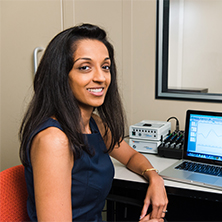
sona.patel@shu.edu
Profile »
caryn.grabowski@shu.edu
Profile »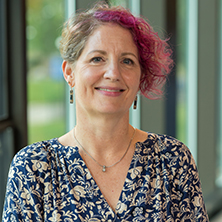
Amy.Hunter@shu.edu
Profile »
Sulie.Chang@shu.edu
Profile »
Richard.Boergers@shu.edu
Profile » - Catholic Social Thought in Action: Integrating Catholic Studies and Social Work Pedagogy
and Practice »
True to its name, this Academy animates the principles of Catholic Social Thought in coursework with experiential service-learning trips that bring our Mission to those in need in communities around the University and beyond.
A collaborative endeavor between the Department of Religion, the Department of Catholic Studies, DOVE, and the Social Work program, this Academy will enhance the articulation of academics with our Mission and, further, promote this articulation to other Catholic universities and to other academic programs.
This Academy is working on the following:
- Developing a Core 3 Catholic Studies and Social Work course: Global Justice: Integrating Catholic Social Teaching into Social Work Practice Worldwide
- Collaborating with the Division of Volunteer Efforts to create a Catholic Studies in Action course with experiential and service components;
- Promote Catholic Studies and Social work dual majors at Seton Hall University;
- Promote and develop the connections between these fields through scholarship presented at Petersheim and international scholarly conferences;
- Host a pioneering conference.
Faculty: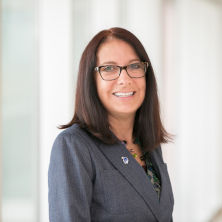
dawn.apgar@shu.edu
Profile »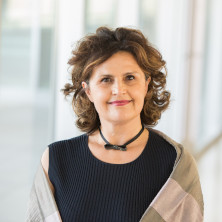
Ines.Murzaku@shu.edu
Profile »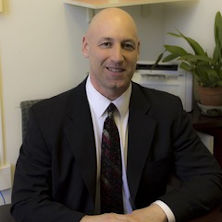
Anthony Nicotera
anthony.nicotera@shu.edu
Profile » - DiploLab Undergraduate Research Lab »
This partnership between the School of Diplomacy & International Relations and University Libraries provides students a stipend and extra software, research, and data analysis training (free of charge) to collaborate with faculty on special projects. Supported by small stipends, faculty mentor the students on projects that lead to both faculty and student publications in academic and popular media, including Foreign Policy and the Washington Post. This data analysis training, experiential learning experience, and genuine research gives students an edge in applications for graduate school and the best jobs.
On the DiploLab model, Library faculty are also training and funding students from across the University—in psychology, digital humanities, business, and other fields—to work on collaborative research projects with faculty. Contact Lisa DeLuca if you are interested in mentoring or participating as a student in such projects: lisa.deluca@shu.edu.
Learn more about the DiploLab »
News: School of Diplomacy is Gifted a Grant to Support Student Researchers [Tuesday, December 21, 2021]
Faculty: - Interprofessional Active Learning Environment, Integrating Simulation and Telehealth
Practices to Promote Psychosocial Wellbeing »
This Academy, housed in the School of Health and Medical Sciences explores the effectiveness of virtual gaming simulation as a mechanism for training students across health professions about the practice of telehealth.
The interprofessional team of faculty have designed an interprofessional active learning simulation (ALS) experience using a virtual reality (VR) avatar-based character that possesses a blend of artificial and human intelligence to enable health professional students to interact as the “human in the situation” to address the person-centered plan of care via a telehealth practice model.
This mechanism promises to allow more robust interdisciplinary training that recognizes how individual patient demographics require different approaches to telehealth by focusing a case study on individuals with psychosocial wellbeing concerns.
The work of this Academy will result in:
- Publication on the study;
- Conference abstracts;
- Substantive further grant submissions, including Telehealth Network Grant Program (300k)
"Using a team science approach, we believe this innovative active learning simulation will help bridge interprofessional student coursework and clinical experiences by intentionally offering a robust high leverage structured practice opportunity incorporating the tenets associated with the practice of Telehealth while addressing the person's psychosocial wellbeing."
-Dr. Genevieve Pinto Zipp
Faculty:
Genevieve.Zipp@shu.edu
Profile »
lorene.cobb@shu.edu
Profile »
marcia.downer@shu.edu
Profile »
Leslie.Rippon@shu.edu
Profile »
Alicia.MacGregor@shu.edu
Profile »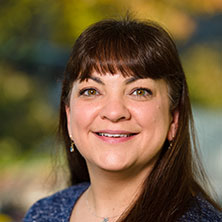
kimberlyann.miller@shu.edu
Profile »
Natalie.Neubauer@shu.edu
Profile »
lauren.snowdon@shu.edu
Profile »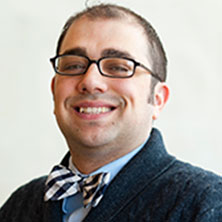
michael.lafontaine@shu.edu
Profile »


